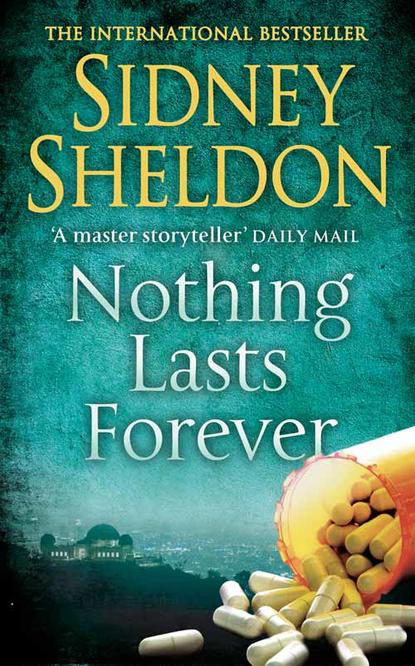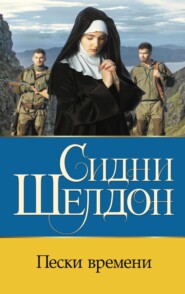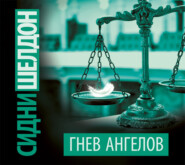По всем вопросам обращайтесь на: info@litportal.ru
(©) 2003-2025.
✖
Nothing Lasts Forever
Автор
Год написания книги
2018
Настройки чтения
Размер шрифта
Высота строк
Поля
Kat had taken little interest in school, or in reading books, but Aunt Sophie changed all that. Her home was filled with books, and Sophie’s excitement about them was contagious.
“There are wonderful worlds in there,” she told the young girl. “Read, and you’ll learn where you came from and where you’re going. I’ve got a feeling that you’re going to be famous one day, baby. But you have to get an education first. This is America. You can become anybody you want to be. You may be black and poor, but so were some of our congresswomen, and movie stars, and scientists, and sports legends. One day we’re going to have a black president. You can be anything you want to be. It’s up to you.”
It was the beginning.
Kat became the top student in her class. She was an avid reader. In the school library one day, she happened to pick up a copy of Sinclair Lewis’s Arrowsmith, and she was fascinated by the story of the dedicated young doctor. She read Agnes Cooper’s Promises to Keep, and Woman Surgeon by Dr. Else Roe, and it opened up a whole new world for Kat. She discovered that there were people on this earth who devoted themselves to helping others, to saving lives. When Kat came home from school one day, she said to Aunt Sophie, “I’m going to be a doctor. A famous one.”
Chapter Four (#ulink_861c2ae9-deeb-52fc-859a-a55f9ecd4dd2)
On Monday morning, three of Paige’s patients’ charts were missing, and Paige was blamed.
On Wednesday, Paige was awakened at 4:00 A.M. in the on-call room. Sleepily, she picked up the telephone. “Dr. Taylor.”
Silence.
“Hello … hello.”
She could hear breathing at the other end of the line. And then there was a click.
Paige lay awake for the rest of the night.
In the morning, Paige said to Kat, “I’m either becoming paranoid or someone hates me.” She told Kat what had happened.
“Patients sometimes get grudges against doctors,” Kat said. “Can you think of anyone who …?”
Paige sighed. “Dozens.”
“I’m sure there’s nothing to worry about.”
Paige wished that she could believe it.
In the late summer, the magic telegram arrived. It was waiting for Paige when she returned to the apartment late at night. It read: “Arriving San Francisco noon Sunday. Can’t wait to see you. Love, Alfred.”
He was finally on his way back to her! Paige read the telegram again and again, her excitement growing each time. Alfred! His name conjured up a tumbling kaleidoscope of exciting memories …
Paige and Alfred had grown up together. Their fathers were part of a medical cadre of WHO that traveled to Third World countries, fighting exotic and virulent diseases. Paige and her mother accompanied Dr. Taylor, who headed the team.
Paige and Alfred had had a fantasy childhood. In India, Paige learned to speak Hindi. At the age of two, she knew that the name for the bamboo hut they lived in was basha. Her father was gorasahib, a white man, and she was nani, a little sister. They addressed Paige’s father as abadhan, the leader, or baba, father.
When Paige’s parents were not around, she drank bhanga, an intoxicating drink made with hashish leaves, and ate chapati with ghi.
And then they were on their way to Africa. Off to another adventure!
Paige and Alfred became used to swimming and bathing in rivers that had crocodiles and hippopotamuses. Their pets were baby zebras and cheetahs and snakes. They grew up in windowless round huts made of wattle and daub, with packed dirt floors and conical thatched roofs. Someday, Paige vowed to herself, I’m going to live in a real house, a beautiful cottage with a green lawn and a white picket fence.
To the doctors and nurses, it was a difficult, frustrating life. But to the two children, it was a constant adventure, living in the land of lions, giraffes, and elephants. They went to primitive cinder-block school-houses, and when none was available, they had tutors.
Paige was a bright child, and her mind was a sponge, absorbing everything. Alfred adored her.
“I’m going to marry you one day, Paige,” he said when she was twelve, he fourteen.
“I’m going to marry you, too, Alfred.”
They were two serious children, determined to spend the rest of their lives together.
The doctors from WHO were selfless, dedicated men and women who devoted their lives to their work. They often worked under nearly impossible circumstances. In Africa, they had to compete with wogesha—the native medical practitioners whose primitive remedies were passed on from father to son, and often had deadly effects. The Masai’s traditional remedy for flesh wounds was olkilorite, a mixture of cattle blood, raw meat, and essence of a mysterious root.
The Kikuyu remedy for smallpox was to have children drive out the sickness with sticks.
“You must stop that,” Dr. Taylor would tell them. “It doesn’t help.”
“Better than having you stick sharp needles in our skin,” they would reply.
The dispensaries were tables lined up under the trees, for surgery. The doctors saw hundreds of patients a day, and there was always a long line waiting to see them—lepers, natives with tubercular lungs, whooping cough, smallpox, dysentery.
Paige and Alfred were inseparable. As they grew older, they would walk to the market together, to a village miles away. And they would talk about their plans for the future.
Medicine was a part of Paige’s early life. She learned to care for patients, to give shots and dispense medications, and she anticipated ways to help her father.
Paige loved her father. Curt Taylor was the most caring, selfless man she had ever known. He genuinely liked people, dedicating his life to helping those who needed him, and he instilled that passion in Paige. In spite of the long hours he worked, he managed to find time to spend with his daughter. He made the discomfort of the primitive places they lived in fun.
Paige’s relationship with her mother was something else. Her mother was a beauty from a wealthy social background. Her cool aloofness kept Paige at a distance. Marrying a doctor who was going to work in far-off exotic places had seemed romantic to her, but the harsh reality had embittered her. She was not a warm, loving woman, and she seemed to Paige always to be complaining.
“Why did we ever have to come to this godforsaken place, Curt?”
“The people here live like animals. We’re going to catch some of their awful diseases.”
“Why can’t you practice medicine in the United States and make money like other doctors?”
And on and on it went.
The more her mother criticized him, the more Paige adored her father.
When Paige was fifteen years old, her mother disappeared with the owner of a large cocoa plantation in Brazil.
“She’s not coming back, is she?” Paige asked.
“No, darling. I’m sorry.”
“I’m glad!” She had not meant to say that. She was hurt that her mother had cared so little for her and her father that she had abandoned them.
The experience made Paige draw even closer to Alfred Turner. They played games together and went on expeditions together, and shared their dreams.
“I’m going to be a doctor, too, when I grow up,” Alfred confided. “We’ll get married, and we’ll work together.”
“And we’ll have lots of children!”
“Sure. If you like.”

















